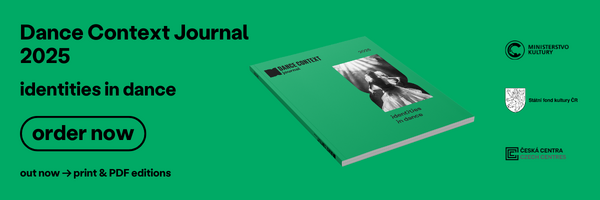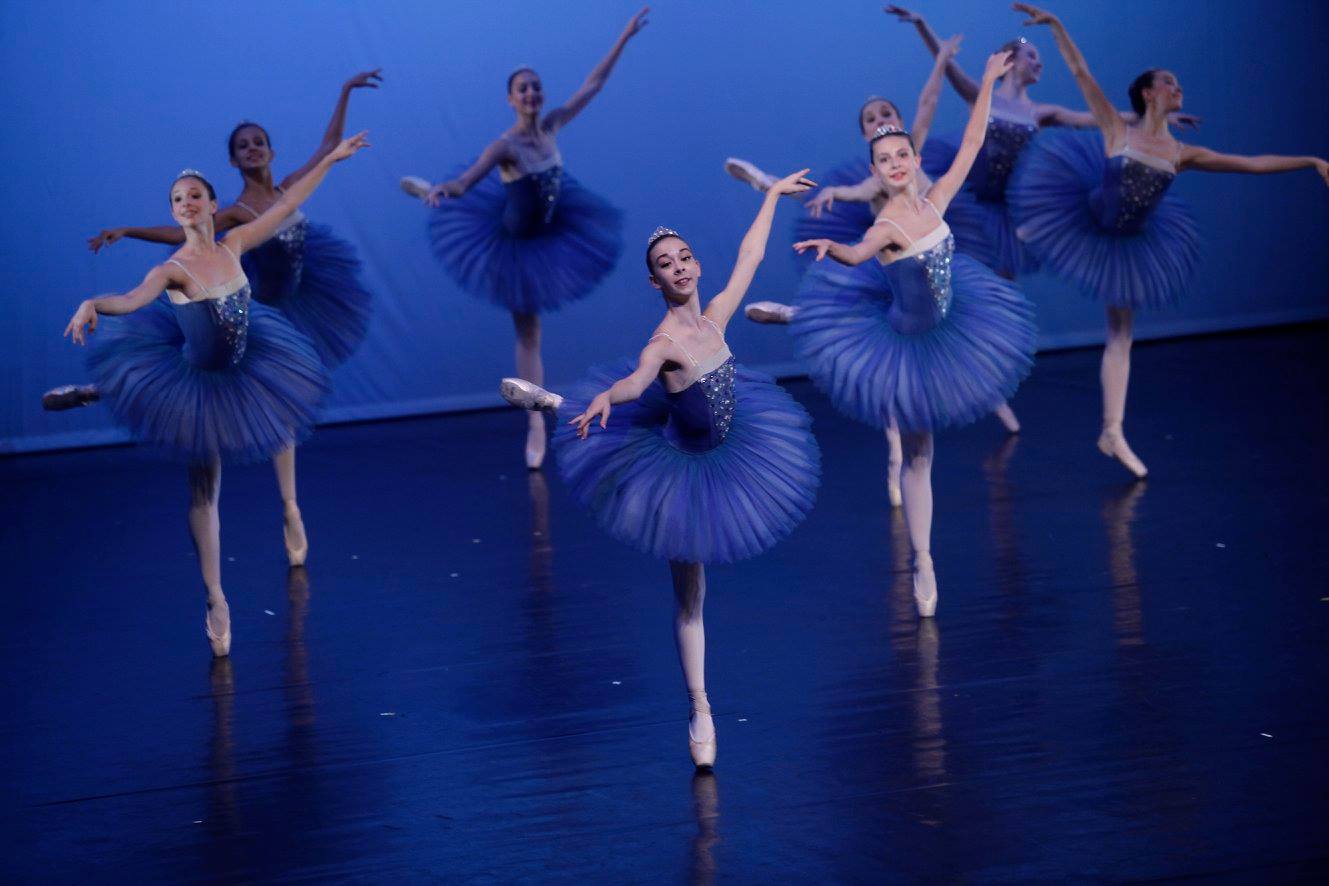 The opening evening of the 52nd Golden Prague International Television Festival was dedicated to the 70th anniversary of the establishment of the Prague Dance Conservatory. The same anniversary is celebrated by the Academy of Performing Arts this year but, given the fact that most of its Dance programme graduates also spent long years of study full of essential travail on the ground of the Prague Dance Conservatory, for the opening and presentation of the Gala Concert the festival management gave priority to the latter seedbed of proficient dancers.
The Gala was opened by Jaroslav Slavický, the Conservatory Director, and Tomáš Motl, the Festival Director and Executive Director of ČT art Channel, both of whom gave speeches. The anniversary itself is a reason to look back and celebrate.
The opening evening of the 52nd Golden Prague International Television Festival was dedicated to the 70th anniversary of the establishment of the Prague Dance Conservatory. The same anniversary is celebrated by the Academy of Performing Arts this year but, given the fact that most of its Dance programme graduates also spent long years of study full of essential travail on the ground of the Prague Dance Conservatory, for the opening and presentation of the Gala Concert the festival management gave priority to the latter seedbed of proficient dancers.
The Gala was opened by Jaroslav Slavický, the Conservatory Director, and Tomáš Motl, the Festival Director and Executive Director of ČT art Channel, both of whom gave speeches. The anniversary itself is a reason to look back and celebrate.A large majority of the Prague Dance Conservatory graduates complete their eight years of studies by passing a school-leaving examination and a graduate examination (absolutorium). In the past, the Dance Section of the Prague Conservatory (and briefly also the Music and Dance School) used to provide five years of study; in 1970s, a number of students had been first enrolled to a three-year preparatory school (7th–9th year of elementary school). Many of them became proficient dancers, ballet soloists, choreographers, dance teachers, assistants, ballet masters as well as dance critics and theoreticians in numerous Czechoslovak and then Czech institutions. Some of them were luckier and brave enough to plunge into the swirl of international competition abroad and by no means sank into averageness. Leaving for an engagement after 1989 was a lot easier than making the vital decision of whether to leave a home country and risk not ever coming back. Those who left after 1989 did not have to face the anxiety and homesickness, which, logically enough, played a certain role in the life and work of everybody who went through the emigration experience. Performances by younger classes
Brief dance and ballet performances of the youngest students tend to be less attractive for the audience. However amusing and charming in their fragile imperfection, they
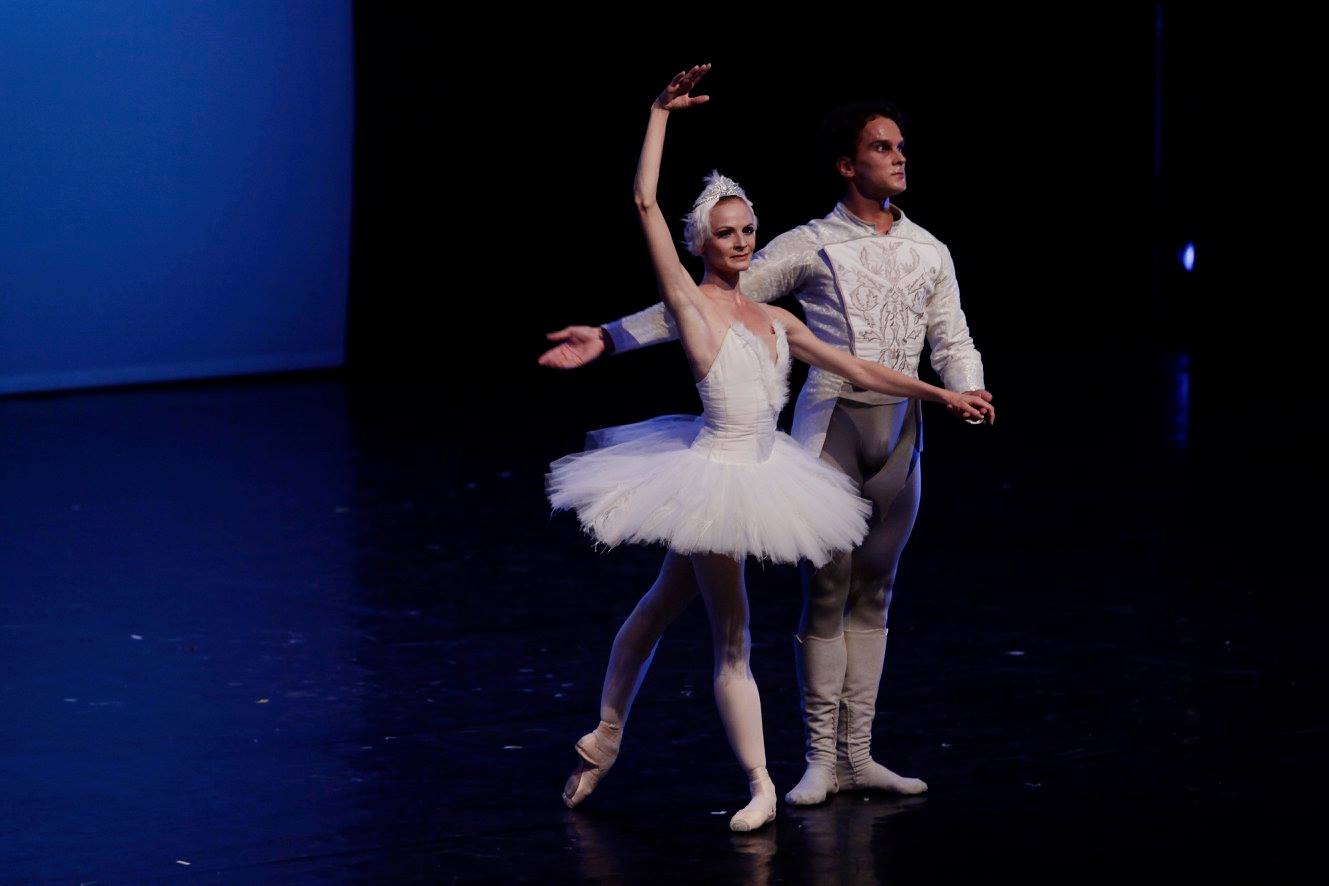 become quite essential for the students and young, talented novice artists. Each public performance of the sort is worth their weight in gold for them and leaves its mark on their further development.
From among the youngest students, the playful energy of the 2nd year students’ Cat Dance (Kočičí tanec), choreographed by Yvetta Hubičková, or the 3rd year girl students in Léo Delibes’ Pizzicato, choreographed by Roberta Pospíšilová, may be pointed out. As far as folk dances are concerned, the joyful Čeladenský dance, by Eva Ornstová, and Helpa, by Magda Kaprasová, were performed with perfection. Hana Vláčilová, an excellent long-time teacher, coaches 8th year girl students. Anna Vágnerová presented a precise yet dynamic performance in the variation of Kitri from Don Quixote. Jiří Horák cast František Vlček and Kristián Pokorný, 6th year students, in the role of young drummers from Graduation Ball, with music by Johann Strauss. As for modern dance, the Awakening (Procitnutí), performed by 7th year students and choreographed by Libuše Ovsová, and Stomping (Dupání), performed by 8th year students and staged by Alena Drápalíková, caught general attention.
Elegance of the classics and playfulness of the modern styles
The second part of the evening focused on graduates and dancers of the Bohemia Ballet and guest soloists primarily from the Bavarian State Ballet in Munich.The French choreographer Bérangère Andreo staged a somewhat uninspiring choreography for the music of J. S. Bach’s Piano Concerto. The playful and graceful dance group had a rather easy time performing it. The choreographer does better with epic story lines in ballets than with abstract music renditions.
become quite essential for the students and young, talented novice artists. Each public performance of the sort is worth their weight in gold for them and leaves its mark on their further development.
From among the youngest students, the playful energy of the 2nd year students’ Cat Dance (Kočičí tanec), choreographed by Yvetta Hubičková, or the 3rd year girl students in Léo Delibes’ Pizzicato, choreographed by Roberta Pospíšilová, may be pointed out. As far as folk dances are concerned, the joyful Čeladenský dance, by Eva Ornstová, and Helpa, by Magda Kaprasová, were performed with perfection. Hana Vláčilová, an excellent long-time teacher, coaches 8th year girl students. Anna Vágnerová presented a precise yet dynamic performance in the variation of Kitri from Don Quixote. Jiří Horák cast František Vlček and Kristián Pokorný, 6th year students, in the role of young drummers from Graduation Ball, with music by Johann Strauss. As for modern dance, the Awakening (Procitnutí), performed by 7th year students and choreographed by Libuše Ovsová, and Stomping (Dupání), performed by 8th year students and staged by Alena Drápalíková, caught general attention.
Elegance of the classics and playfulness of the modern styles
The second part of the evening focused on graduates and dancers of the Bohemia Ballet and guest soloists primarily from the Bavarian State Ballet in Munich.The French choreographer Bérangère Andreo staged a somewhat uninspiring choreography for the music of J. S. Bach’s Piano Concerto. The playful and graceful dance group had a rather easy time performing it. The choreographer does better with epic story lines in ballets than with abstract music renditions.
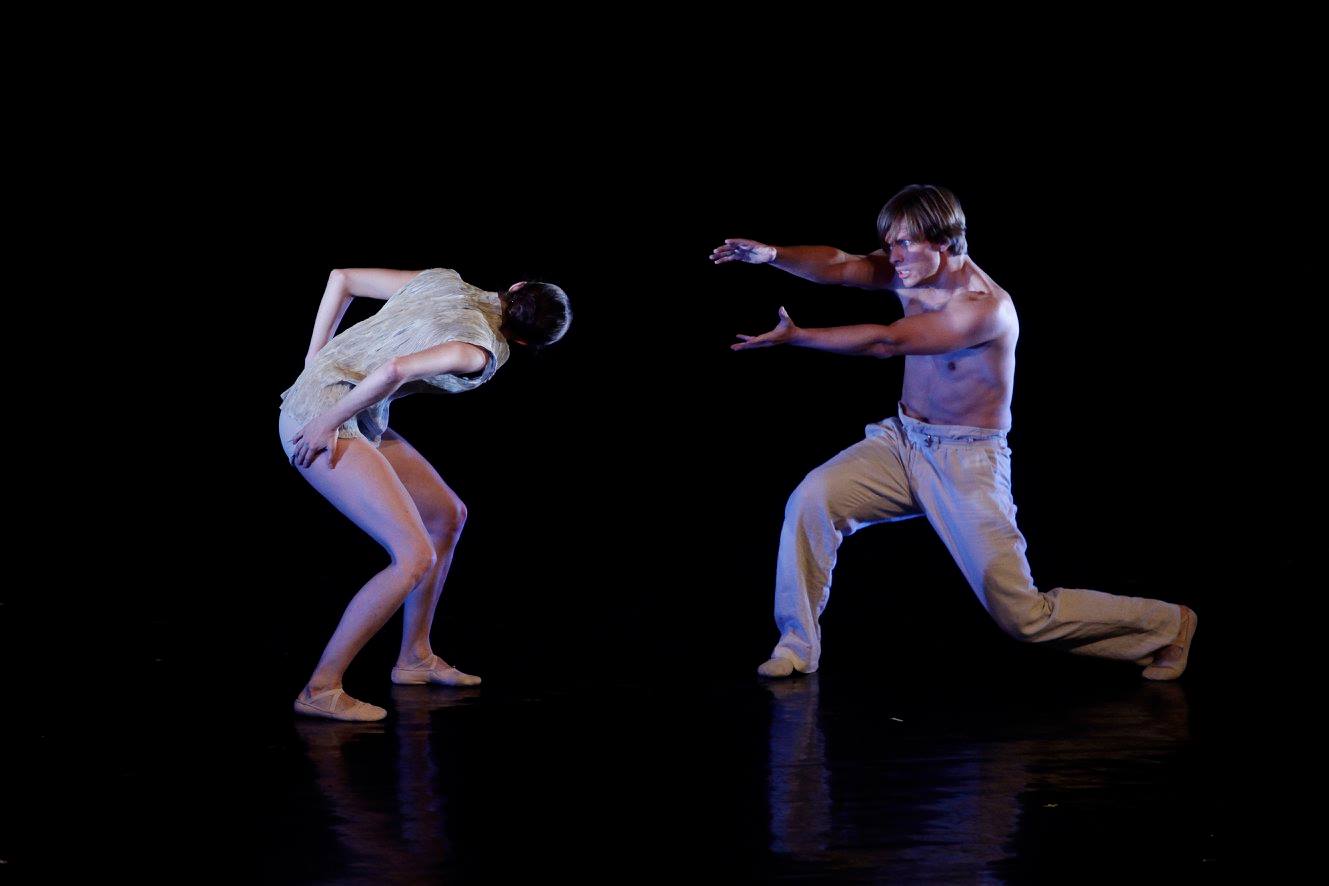 Radka Podařilová and Adam Zvonař performed a very elegant dance but their Adagio from Le Corsaire ballet had an air of excessive artificiality, of art for art’s sake, especially because they lacked the grand space of an opera house and proper distance and detachment from the audience. Barbora Kohoutková, whose fantastic career abroad has been jeopardized by several accidents, is in almost incredible shape. With Jiří Kodym, the National Theatre’s ballet soloist, she performed a minutely polished and great Odette from Swan Lake. Her performance, together with the ensuing guest appearance of Zuzana Zahradníková and Lukáš Slavický (both soloists at the Bavarian State Ballet in Munich) in Jiří Kylián’s choreography Gods and Dogs, were the high points of the Gala. Ondřej Vinklát, the National Theatre’s current first soloist, starts to appear to be a skilful choreographer. Paired with his colleague Štěpán Pechar, he performed a short composition Delicate Toss (Křehký vrh). In comparison to the preceding pieces, their performance had an air of disarray, heaviness and sturdiness. Tereza Podařilová’s Madame de Merteuil, from Libor Vaculík’s ballet Valmont, was natural and exciting. What a beautiful role for the fantastic artist’s culminating dancing career! Valmont is a splendidly staged ballet but this sample, lifted out of the plot into a concert-style arrangement of pieces, is detrimental to the work rather than beneficial.
Zbyněk Matějů’s American premiere
In conclusion of the already crammed programme, American choreographer’s Raiford Rogers’ Still Life, with Zbyněk Matějů’s fully original music, was staged in Czech premiere in full 24 minutes. The world premiere took place on 18 July 2015 as a custom-made performance with the Los Angeles Chamber Ballet. Zbyněk Matějů created a contemplative composition, sometimes very raw and rich in sound. For Czech dance performance and staging the author approached the aforementioned Bohemia Ballet, headed by Jaroslav Slavický. In a relatively short period, during the month of September, the young dancers, together with František Vlček, a talented 6th year student, mastered rather complicated and long-flowing passages.
The structure of the dance piece is generally well arranged. At the beginning, the group phase is quite nicely distributed in space, which the choreographer plays with in the traditional manner. The short duets appear to be somewhat unfinished and are carried over to the group phase again. The solo performance by the “lonely” dancer, aforementioned František Vlček, picked by the choreographer himself, made a peculiar impression – whether it expressed isolation or a situation of an individual cast out because his presence is out of the common run is not completely clear.
Radka Podařilová and Adam Zvonař performed a very elegant dance but their Adagio from Le Corsaire ballet had an air of excessive artificiality, of art for art’s sake, especially because they lacked the grand space of an opera house and proper distance and detachment from the audience. Barbora Kohoutková, whose fantastic career abroad has been jeopardized by several accidents, is in almost incredible shape. With Jiří Kodym, the National Theatre’s ballet soloist, she performed a minutely polished and great Odette from Swan Lake. Her performance, together with the ensuing guest appearance of Zuzana Zahradníková and Lukáš Slavický (both soloists at the Bavarian State Ballet in Munich) in Jiří Kylián’s choreography Gods and Dogs, were the high points of the Gala. Ondřej Vinklát, the National Theatre’s current first soloist, starts to appear to be a skilful choreographer. Paired with his colleague Štěpán Pechar, he performed a short composition Delicate Toss (Křehký vrh). In comparison to the preceding pieces, their performance had an air of disarray, heaviness and sturdiness. Tereza Podařilová’s Madame de Merteuil, from Libor Vaculík’s ballet Valmont, was natural and exciting. What a beautiful role for the fantastic artist’s culminating dancing career! Valmont is a splendidly staged ballet but this sample, lifted out of the plot into a concert-style arrangement of pieces, is detrimental to the work rather than beneficial.
Zbyněk Matějů’s American premiere
In conclusion of the already crammed programme, American choreographer’s Raiford Rogers’ Still Life, with Zbyněk Matějů’s fully original music, was staged in Czech premiere in full 24 minutes. The world premiere took place on 18 July 2015 as a custom-made performance with the Los Angeles Chamber Ballet. Zbyněk Matějů created a contemplative composition, sometimes very raw and rich in sound. For Czech dance performance and staging the author approached the aforementioned Bohemia Ballet, headed by Jaroslav Slavický. In a relatively short period, during the month of September, the young dancers, together with František Vlček, a talented 6th year student, mastered rather complicated and long-flowing passages.
The structure of the dance piece is generally well arranged. At the beginning, the group phase is quite nicely distributed in space, which the choreographer plays with in the traditional manner. The short duets appear to be somewhat unfinished and are carried over to the group phase again. The solo performance by the “lonely” dancer, aforementioned František Vlček, picked by the choreographer himself, made a peculiar impression – whether it expressed isolation or a situation of an individual cast out because his presence is out of the common run is not completely clear.
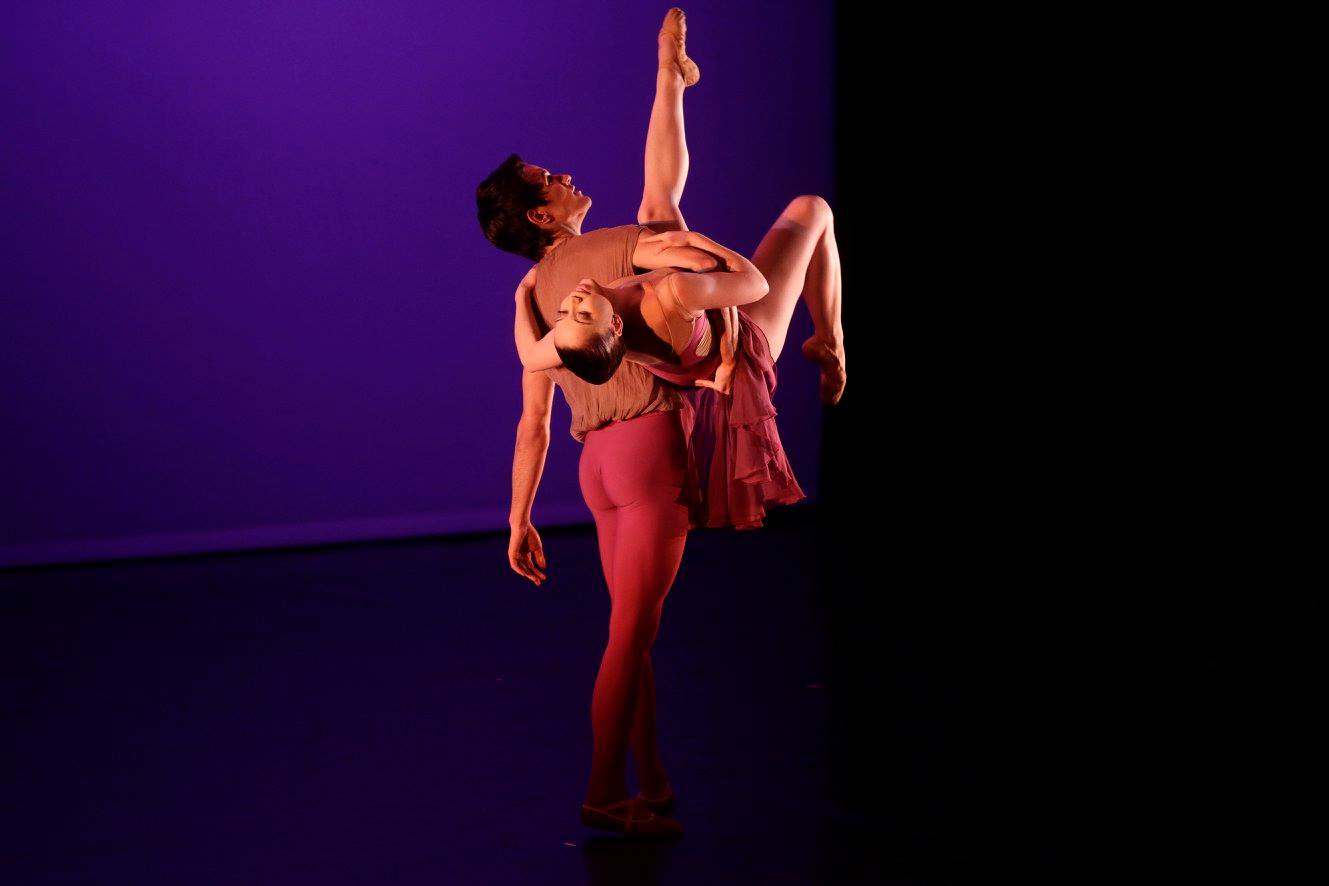 His performance, however, was very focused, even too calm in expression. The choreography, and the piece in general, seem to be somewhat faltering and stiff. They lack youthful excitement and proper dynamics, which the conclusion of the gala concert would deserve. In terms of music, the composition is certainly very interesting but overly contemplative for a young ensemble. The choreography, a bit cold and divorced from reality in Cunningham’s style, would also deserve a different position within the dramaturgy of the long evening.
It is naturally very difficult to decide who should be assigned roles or which titles and samples should be presented for such a ceremonial occasion. However, as a consequence the event becomes a marathon of sorts and honoured guests, soloists as well as choreographers and their real artistic performances are lost in the quantity of all pieces.
Report based on the performance on 30 September 2015, New Stage, National Theatre Prague.
Golden Prague International Television Festival
52th season, Gala Concert
30 September – 3 October 2015
Translation: Petr Štádler
His performance, however, was very focused, even too calm in expression. The choreography, and the piece in general, seem to be somewhat faltering and stiff. They lack youthful excitement and proper dynamics, which the conclusion of the gala concert would deserve. In terms of music, the composition is certainly very interesting but overly contemplative for a young ensemble. The choreography, a bit cold and divorced from reality in Cunningham’s style, would also deserve a different position within the dramaturgy of the long evening.
It is naturally very difficult to decide who should be assigned roles or which titles and samples should be presented for such a ceremonial occasion. However, as a consequence the event becomes a marathon of sorts and honoured guests, soloists as well as choreographers and their real artistic performances are lost in the quantity of all pieces.
Report based on the performance on 30 September 2015, New Stage, National Theatre Prague.
Golden Prague International Television Festival
52th season, Gala Concert
30 September – 3 October 2015
Translation: Petr Štádler


